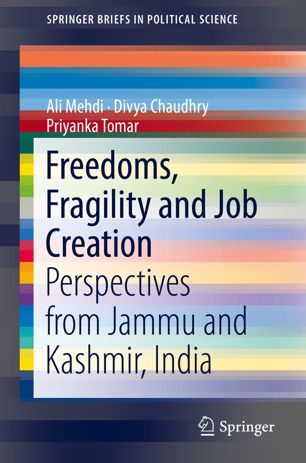

Most ebook files are in PDF format, so you can easily read them using various software such as Foxit Reader or directly on the Google Chrome browser.
Some ebook files are released by publishers in other formats such as .awz, .mobi, .epub, .fb2, etc. You may need to install specific software to read these formats on mobile/PC, such as Calibre.
Please read the tutorial at this link: https://ebookbell.com/faq
We offer FREE conversion to the popular formats you request; however, this may take some time. Therefore, right after payment, please email us, and we will try to provide the service as quickly as possible.
For some exceptional file formats or broken links (if any), please refrain from opening any disputes. Instead, email us first, and we will try to assist within a maximum of 6 hours.
EbookBell Team

4.7
46 reviewsThis book argues that inequality of basic freedoms—economic, political, sociocultural—is a central cause of fragility and challenge to job creation in fragile geopolitical situations. It is based on extensive official data and stakeholder interactions in the conflict-ridden Indian border state of Jammu and Kashmir, and involves a case study research methodology. This is the first book which invokes the philosophical perspective of freedom to analyze two of the most pressing challenges of our time—fragility and job creation—and, as such, makes a fundamental contribution to both strands of academic and policy literature. From this perspective, development in the sense of freedoms—particularly the enhancement of human agency through jobs—should be a central strategy in tackling fragility. Most literature on Indian Kashmir has been emotional or political in nature, lacking the serious yet interesting multidisciplinary focus presented here—which is a historical assessment of Kashmir’s political economy, economic indices, employment patterns, challenges of infrastructure and human capital. Ending with a set of long-, medium- and immediate-term policy recommendations to address the challenge of jobs in the state, this is the only book on Indian Kashmir which is at once philosophical, social-scientific and policy-oriented in nature. Academics in development studies, regional development, political science and international relations, international organizations working in fragile regions around the world, national and international policymakers, the private sector, civil society, media as well as ordinary readers interested in the issue of Kashmir will find it engaging and useful.